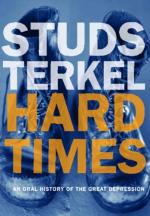
|
| Name: _________________________ | Period: ___________________ |
This test consists of 15 multiple choice questions and 5 short answer questions.
Multiple Choice Questions
1. What was Roosevelt trying to prevent with the Bank Holiday?
(a) The emigration of bank owners.
(b) The decimation of people's savings.
(c) Buyouts by large conglomerate banks.
(d) A run on failing banks.
2. How does Dr. Martin Bickham recommend his employers help struggling Americans during the Depression?
(a) Organize bread lines.
(b) Contribute to governmental efforts.
(c) Issue relief through churches.
(d) Develop work programs.
3. As he entered his later years, what term did Roosevelt use to describe himself among aides?
(a) The poor public servant.
(b) The indispensible man.
(c) King Frank.
(d) Ozymandias.
4. According to Max Shachtman, why was Communism especially vital just before FDR was elected?
(a) Capitalism seemed doomed.
(b) The US seemed set to ally with the USSR.
(c) Hoover's administration was riddled with communists.
(d) World War I destabilized many western democracies.
5. According to historian Christopher Lasch, what was never a serious possibility in the Depression?
(a) A right-wing reaction.
(b) Annexation by Canada.
(c) Revolution.
(d) Loss of personal freedom.
6. At the end of his interview, Horace Cayton discusses why black Americans never joined what group en masse?
(a) The Wobblies.
(b) The Republicans.
(c) The Communists.
(d) The Unions.
7. What was different about a teachers' strike in the 1930's?
(a) They left town for fear of violent reprisal.
(b) They protested at City Hall, not the schools.
(c) They continued to teach throughout.
(d) They protested in private, writing letters.
8. What legendary artist of the twentieth century directed The Cradle Will Rock?
(a) Lawrence Olivier.
(b) Orson Welles.
(c) John Gielgud.
(d) Lee Strasburg.
9. What was Paul Draper's occupation during the 1930's?
(a) Dancer.
(b) Actor.
(c) Playwright.
(d) Photographer.
10. Who played the piano for opening night of The Cradle Will Rock?
(a) Marc Blitzstein.
(b) Hiram Sherman.
(c) John Houseman.
(d) George Gershwin.
11. According to Buddy Blankenship in Sixteen Ton, what did coal companies often pay instead of money?
(a) Coal.
(b) Food rations.
(c) IOUs.
(d) Company vouchers.
12. What was Huey Long's central message in his nationally broadcast speeches?
(a) Establishing a national bank.
(b) Entering World War II.
(c) Redistibution of wealth.
(d) Segregation.
13. How was public housing viewed differently by the public in the 1930's than it is today?
(a) It was not thoroughly understood.
(b) It was thought nicer than private housing.
(c) It was open to people of all income brackets.
(d) It was despised by the wealthy.
14. According to Samuel A. Heller, what did police often do with arraigned people awaiting trial in the 1930's?
(a) Have them shine their shoes.
(b) Have them sing for their entertainment.
(c) Beat them for fun.
(d) Pawn them off to construction crews.
15. In whose administration was David Kennedy the Secretary of the Treasury?
(a) Kennedy.
(b) Roosevelt.
(c) Eisenhower.
(d) Nixon.
Short Answer Questions
1. Where did Max R. Naiman and his worker's rights clients end up sleeping after he got them acquitted?
2. What does Edward Burgess say he never saw in Chicago in the 1930's?
3. What does the young man in the final interview of Arrests and Other Running Sores do for a living?
4. What controversial action did the Rural Rehabilitation Division undertake in the 1930's?
5. What event discussed earlier in the book does Harry Norgard think was destructive to society?
|
This section contains 550 words (approx. 2 pages at 300 words per page) |

|




